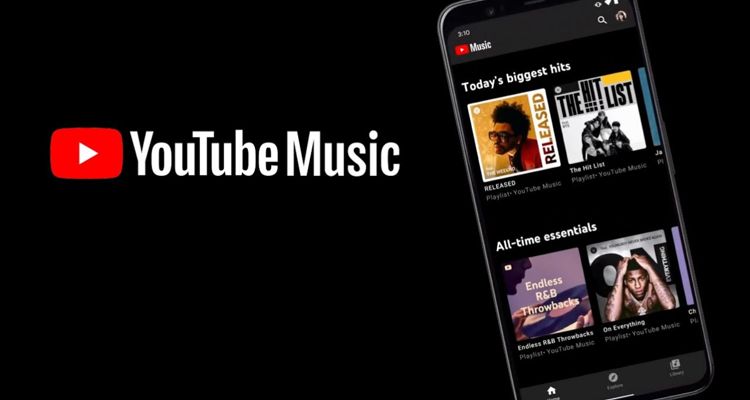
Photo Credit: YouTube
Spotify competitors YouTube Music and YouTube Premium officially boast a combined total of over 50 million subscribers (including those who are accessing the services via free trials), according to company higher-ups.
YouTube global head of music (and former Warner Music recorded-music CEO) Lyor Cohen revealed the YouTube Music and Premium subscribership milestone – and highlighted his plans to increase the figure moving forward – in a brief post on the Google-owned platform’s blog.
Aptly titled “50 Million,” the approximately 500-word-long message states of the services’ subscriber total: “YouTube has surpassed 50 million Music and Premium subscribers, including trialers, and is the fastest growing music subscription service out there (MiDIA).”
The text doesn’t disclose how many of these 50 million subscribers utilize YouTube Music (which, like most every other music-streaming service, costs $9.99 per month in the U.S.) and how many use YouTube Premium (which costs $11.99 per month and includes access to Music). Additionally, Google execs didn’t look to have commented publicly on the matter at the time of this piece’s publishing.
For additional context with regard to the “fastest growing music subscription service” claim, though, YouTube in late October of last year said that it had 30 million Premium and Music subscribers, for an approximate average of two million new subscribers per month (and six million per quarter) in the interim.
Stockholm-based Spotify, on the other hand, had attracted 165 million total paid users as of Q2 2021’s end, an increase of seven million on the quarter. Q1 2021 brought Spotify only three million new subscribers, however, compared to 11 million additional paid subscribers (and 14 million more ad-supported accounts) in Q4 2020.
Cohen, in explaining the relatively rapid subscriber growth turned in by YouTube Music and Premium, identified the services as “killer products” and said that “there’s no other place where fans can get uninterrupted access to the largest and most diverse catalogue of music, artists and culture.”
This catalogue encompasses music videos, cover videos, behind-the-scenes footage from artists, YouTube Shorts (to which creators can add songs), livestreams, and the ability to interact in clips’ comments sections, Cohen explained, emphasizing that competing (traditional) music-streaming platforms don’t come equipped with each of the features.
Building upon the point, the 300 Entertainment founder made clear that exclusive content offerings – such as country star Tim McGraw’s recent “afterparty” for the release of his “7500 OBO” music video – “are a win-win for artists and Premium members alike,” and that fans can “expect to see many” similar events in the future.
A number of music-industry professionals – such as Warner Music recorded-music CEO Max Lousada, Universal Music head Lucian Grainge, and HYBE CEO Lenzo Yoon – provided statements in support of the YouTube Music and Premium subscribership milestone in a formal announcement email from YouTube. Interestingly, Sony Music CEO Rob Stringer is conspicuously absent from the list of execs who commented on the development, and it bears mentioning on this front that YouTube reportedly has the lowest per-stream royalty rate of today’s leading streaming services.
The Google subsidiary also continues to aggressively push its aforementioned TikTok competitor Shorts. And Sony Music – besides having seen one of its bestselling artists, Lil Nas X, rise to prominence due in large part to a TikTok trend – inked a massive licensing agreement with the ByteDance-owned platform in November of 2020, even though the controversial video-sharing app’s stateside ban appeared imminent at the time.
Furthermore, July of 2020 saw Sony Music Publishing finalize a comprehensive partnership agreement with TikTok talent agency TalentX, and Hipgnosis higher-ups stated in their FY 2021 earnings report that “we believe TikTok alone is already 6.5% of Sony Music’s revenues.”
Back in June, Cohen said that YouTube had paid over $4 billion to the music industry during the prior 12 months, and YouTube Theater opened at Hollywood Park last month.

